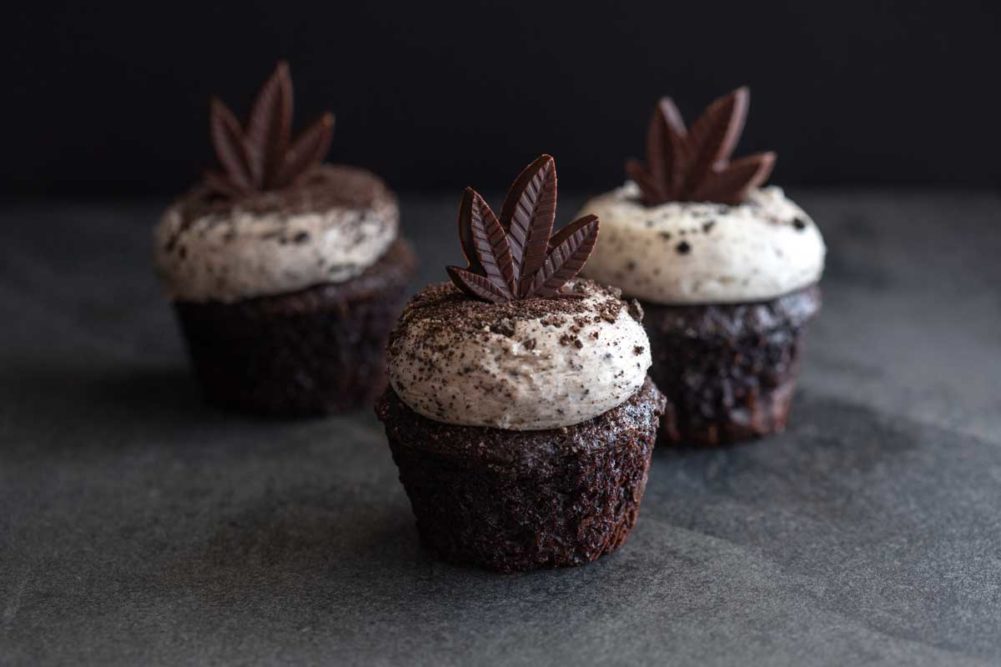Roberta Wilson’s father, Norm, was a dermatologist and known for his comforting and comedic manner. Her mother, Audrey, was a pharmacist and passionate baker whose chocolate chip cookies were famous in her Southern California community. So, when Ms. Wilson and her brother Jeff Koz began a cannabis business using her mother’s cookie recipe, they figured it was only appropriate to pay homage to their healthcare professional parents.
That’s why in 2016, they pivoted Ms. Wilson’s bakery business, Audrey’s Cookies, into a new venture called Dr. Norm’s. The Los Angeles-based business offers lines of cannabidiol (CBD) and tetrahydrocannabinol (THC) baked products. The company’s California hemp-based CBD isolate, which contains no THC or psychoactive properties, is lab tested to determine its strength and quality before being mixed into the family cookie recipe at 15 mg per cookie. Testing the CBD oil is not required by California or federal law, but the company does so to ensure safety, accuracy and consistency. The isolate ensures that only the beneficial properties of the CBD oil make it into the product. The terpenes and other cannabinoids found in hemp extract that have a strong and unappealing taste are eliminated.
“When you’re an edibles company, it’s all about taste and efficacy,” Ms. Wilson said. “We decided to stay true to our mission, which was to make these cookies taste great. You just taste the cookie, not the cannabis.”
Sold across the country online and in CBD retailers, Dr. Norm’s has a wide consumer demographic. And its sales reflect national trends for CBD edible products, especially during the coronavirus (COVID-19) pandemic.
“From elderly who love them for arthritis or sleep to young people dealing with COVID and anxiety to the middle-aged for aches and pains, our customers cut across a broad range,” Ms. Wilson said.
[Related reading: CBD bakeries seeing increased sales during COVID-19]
Dr. Norm’s is one of many companies competing for a share of the national CBD market — one that reached $4.1 billion in sales in 2019, according to the research firm Brightfield Group. Within the larger CBD market, edibles that include baked goods saw $90.5 million in sales. CBD beverages reached $143 million in sales and other edibles like gummies totaled $309 million. Tinctures, which are used to apply CBD oil to a variety of products, remain the biggest seller with $1 billion in sales last year.
Despite the complicated network of state and federal laws limiting the sale of CBD as an edible or food supplement, the market is projected to grow immensely in the coming years. Brightfield Group forecasts that the total CBD market will reach $24.3 billion in sales by 2025, with baked goods and chocolates estimated to reach $593 million.
For Dr. Norm’s, the mission is to make tasty treats while educating consumers about CBD. One of the biggest talking points is that CBD does not get the consumer high. In time, Ms. Wilson hopes the US Food and Drug Administration (FDA) will reverse its stance against CBD in food and allow the market to reach its potential.
“In the meantime, the consumer marketplace doesn’t care,” she said. “That’s not an obstacle for them to purchase. On the wholesale side, individual CBD stores don’t care. It’s just stopping us from large grocery store chain distribution.”
Fighting for federal approval
The cannabis plant has three main species: sativa (hemp and marijuana), indica (marijuana) and ruderalis. All cannabis plants contain cannabinoids which interact with the human body’s endocannabinoid system. More than 100 different cannabinoids exist, of which CBD and THC are the most well-known.
CBD is non-psychoactive and used as a medicinal ingredient in a range of products from foods to cosmetics.
Currently, commercialized recreational and medical CBD is legal in 36 states and the District of Columbia. Eleven states have fully legalized cannabis, including for recreational purposes.
“There are many misconceptions around the differences between THC and CBD, as well as the differences between hemp and marijuana, which are largely driven by an uncertain regulatory framework at the federal level and a patchwork of state laws across the US,” said Melissa Abbott, vice president of Hartman Retainer Services at The Hartman Group.
[Related reading: An untapped revenue stream for cannabis-based bakeries]
The CBD craze gained momentum in 2018 when FDA removed hemp-derived oils from the Controlled Substances Act. However, it remains illegal to introduce food containing added CBD into interstate commerce or to market CBD as a dietary supplement. The uncertainty surrounding CBD, despite its popularity, creates a confusing marketplace that leaves consumers subject to inconsistent supply.
“Current appeal may be partially driven by these illicit connotations, but we see CBD’s actual medical uses as strong engines for long-term future mainstream growth,” Ms. Abbott said. “We are not yet seeing national brands incorporating CBD into baked goods; however, local and independent bakeries are embracing the trend. As with other food and wellness trends, it’s often the independent operators who engage and introduce consumers to new formats, flavors and wellness modalities.”
Ms. Abbott argued that until all parts of the cannabis plant are federally recognized as legal, these products will remain relegated to state-controlled dispensaries or CBD stores.
This article is an excerpt from the August 2020 issue of Baking & Snack. To read the entire feature, click here.





